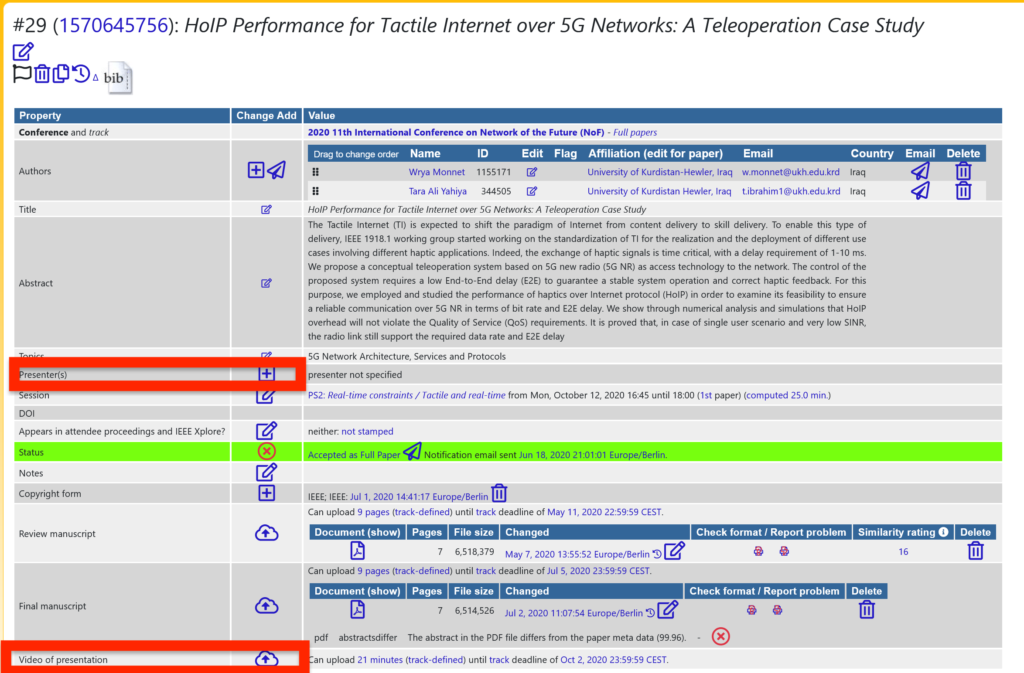As CSNet 2020 will be held as a virtual conference, speakers are required to record and submit a video of their talk by October 14.
The recorded video should be uploaded on EDAS like the camera-ready paper.
For each paper, the presenter of the paper must be indicated and his/her bio uploaded on EDAS.

During the actual presentation on October 21 – 23, 2020, and at the start of every session, a live presentations are preferred, the pre-recorded video of the presentation will be used as back-up and at least one of the paper’s authors will be online to answer questions later, otherwise, the paper will not be published in the IEEE Xplore.
The pre-recorded video is mandatory, but still, speakers will have the option to present live during the session.
Below are the maximum duration of videos and Q&A sessions depending on the paper type:
- Duration of video files:
- Full papers presentation video: 21 min
- Short papers presentation video: 13 min
- Duration of the Q&A sessions on Webex:
- Full papers: 4 min
- Short papers: 2 min
Instructions for Video Recording
Videos should contain a prominent view of the presentation slides along with audio of the spoken presentation. Optionally videos may contain a shot of the speaker’s head for increased engagement. (This shot should be thumbnail-sized and overlayed on the slide images as shown here.) Many presentation software allows recording audio and video directly in the application and can export appropriate video files. Please see the notes below for detailed instructions for PowerPoint and KeyNote. If you use a different application, please see the notes under Other Options.
Details
Recommendations:
- format 16:9
- resolution 720p
- better to be less than 200MB
- duration depending on your paper type, check above information
PowerPoint
- Follow these instructions to add audio (and optionally video) to your slides.
- Follow these instructions to generate a MPEG-4 (.mp4) file from your slides and audio/video.
- Alternatively, you can follow this video tutorial which goes through both of these steps. Also, see this video tutorial if you like.
Other Options
- Record your screen (and microphone) while giving the presentation.
- As a last resort, and only if you are comfortable directly editing video, you can export your slides as images, record an audio track, and combine the two.



